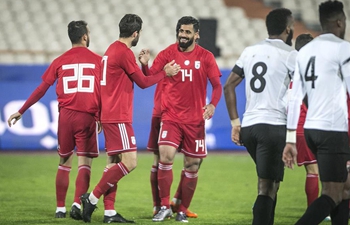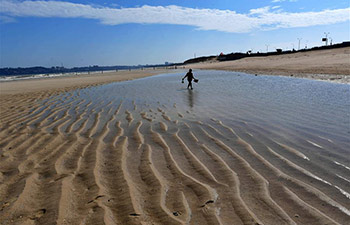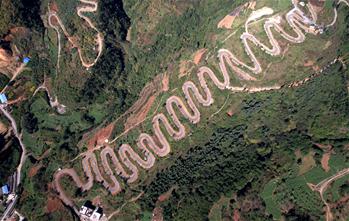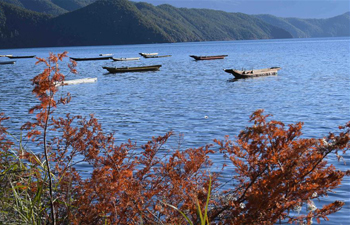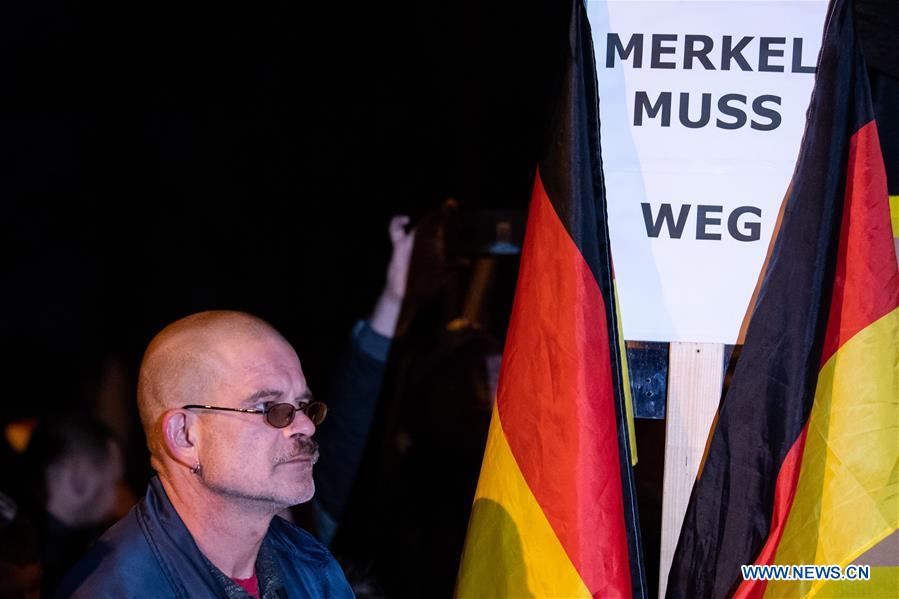 ?
?A protester attends a demonstration in Chemnitz, eastern Germany, on Nov. 16, 2018. German Chancellor Angela Merkel on Friday clarified her refugee policy during her visit to the eastern city of Chemnitz, a place regarded as the center of several severe xenophobic protests months ago. While Merkel was busy defusing doubts, hundreds of protesters gathered and marched in Chemnitz with some shouting slogans like "Merkel must go." (Xinhua)
BERLIN, Nov. 16 (Xinhua) -- German Chancellor Angela Merkel on Friday clarified her refugee policy during her visit to the eastern city of Chemnitz, a place regarded as the center of several severe xenophobic protests months ago.
In a town hall dialogue with the local residents, under more of an unfriendly atmosphere, Merkel urged people to reject "hatred and lies", defending her welcoming policy that allowed more than one million asylum seekers into Germany since 2015.
Merkel said although she was under heavy criticisms, she managed a deal with Turkey that stop the influx of migrants and therefore she "managed a lot" during the crisis, echoing her "wir schaffen das (we will manage it)" rallying call.
She admitted that more should be done to integrate the migrants and those who committed crimes should be punished.
Talking on the issue of the UN pact to regulate the treatment of migrants, Merkel said her opinion was often distorted by opponents and Germany's support of such deal was out of its own interest, adding it would deter the illegal migrants from African countries.
"What we cannot do is letting those who spread hatred and incitement to set our daily agenda," Merkel said.
While Merkel was busy defusing doubts, hundreds of protesters gathered and marched in Chemnitz with some shouting slogans like "Merkel must go".
The city broke out a series of riots three months ago after a fatal stabbing of a German man suspiciously by two migrants. Some far-rights activists and extremists gathered at the city and several xenophobic attacks took place.
Merkel's visit was considered long-awaited, and the mayor of Chemnitz Barbara Ludwig criticized her coming was "too late".
Merkel, however, explained that her timing was intended to not to polarize the situation.

